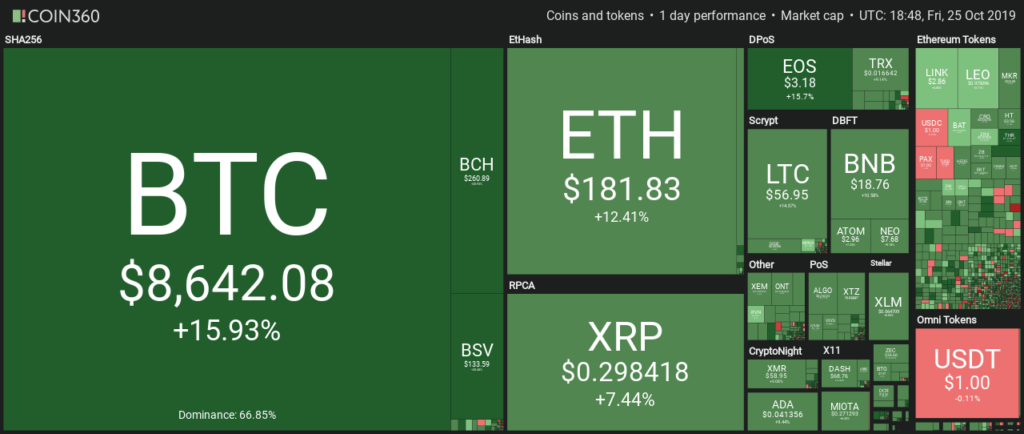crypto etf bitcoin ethereum solana Overview and Insights
Exploring crypto etf bitcoin ethereum solana brings us into the exciting intersection of traditional finance and the burgeoning world of digital assets. As cryptocurrencies gain traction, the introduction of Exchange-Traded Funds (ETFs) has made it easier for investors to dip their toes into this volatile market without the complexities of directly buying coins.
Crypto ETFs offer a unique way to invest in cryptocurrencies like Bitcoin, Ethereum, and Solana, each with its distinct features and potential. This overview will provide insights into how these ETFs function, their market significance, and what sets them apart from traditional ETFs.
Introduction to Crypto ETFs
Crypto ETFs, or Exchange-Traded Funds, represent a significant development in the financial landscape, particularly within the cryptocurrency market. These funds allow investors to gain exposure to various digital assets without the need to directly purchase or manage the underlying cryptocurrencies. Instead, a crypto ETF holds a collection of assets, tracking their performance and enabling trading on traditional stock exchanges. This structure offers a level of convenience and security that appeals to both retail and institutional investors.The significance of Crypto ETFs lies in their ability to bridge the gap between traditional finance and the burgeoning world of digital assets.
They provide a regulated vehicle for investing in cryptocurrencies, which can enhance market legitimacy and attract a broader investor base. Unlike traditional ETFs that focus on stocks, bonds, or commodities, crypto ETFs specifically target digital currencies, creating unique opportunities and challenges.
Bitcoin ETFs
Bitcoin ETFs have garnered considerable attention since their inception, reflecting the growing acceptance of Bitcoin as an asset class. The first Bitcoin ETF was proposed years ago, but regulatory hurdles delayed its approval. Over time, several major Bitcoin ETFs have emerged, such as the ProShares Bitcoin Strategy ETF, which launched in late 2021, allowing investors to trade Bitcoin futures as an ETF.However, Bitcoin ETFs also face regulatory challenges, particularly concerning the custody and security of underlying assets.
The U.S. Securities and Exchange Commission (SEC) has been cautious, emphasizing the need for investor protection and market integrity. This scrutiny continues to shape the landscape of Bitcoin ETFs, influencing both their development and investor confidence.
Ethereum ETFs
The emergence of Ethereum ETFs marks a significant milestone in the crypto investment arena, as Ethereum's blockchain technology and smart contracts have gained traction. Major players in the ETF space have recognized the potential of Ethereum, leading to a variety of Ethereum-focused ETFs. These funds tap into the growing interest in decentralized finance (DeFi) and NFTs (non-fungible tokens), both of which are primarily powered by the Ethereum network.Investors in Ethereum ETFs can benefit from exposure to a rapidly evolving technology landscape.
However, it’s crucial to understand the associated risks, including potential volatility and regulatory uncertainties that could impact the performance of these ETFs.
Solana ETFs

Solana, known for its high-speed transactions and low fees, has captured attention within the ETF market. Its unique blockchain architecture and scalability make it a contender among leading cryptocurrencies. As a result, Solana ETFs are beginning to emerge, offering investors a new avenue for diversification.While currently fewer in number compared to Bitcoin and Ethereum ETFs, existing Solana ETFs are showing promising performance metrics.
When comparing Solana ETFs to those focused on Bitcoin and Ethereum, investors should consider factors such as volatility and growth potential. Solana's rapid innovation may present both opportunities and challenges, making it essential for investors to stay informed about market dynamics.
Comparison of Crypto ETFs
A comparative analysis of Bitcoin, Ethereum, and Solana ETFs reveals distinctive characteristics that can guide investment decisions. Below is a table summarizing key differences in terms of market maturity, risk profile, and potential growth:
| Type of ETF | Market Maturity | Risk Profile | Growth Potential |
|---|---|---|---|
| Bitcoin ETF | Established | Moderate to High | High |
| Ethereum ETF | Emerging | High | Very High |
| Solana ETF | New | High | Potentially Very High |
Each type of crypto ETF presents unique advantages and disadvantages. Bitcoin ETFs offer a more established investment route, while Ethereum and Solana ETFs are seen as more speculative but with significant upside potential. Investors can adopt various strategies, such as diversifying across multiple crypto ETFs to balance risk and reward.
Future Trends in Crypto ETFs

The future of Crypto ETFs is promising, with predictions suggesting continued growth and innovation. As more institutional investors enter the market, we may witness an increase in the diversity of crypto ETFs, including options that track a basket of cryptocurrencies rather than focusing on a single asset. Potential innovations could include ETFs that utilize advanced trading strategies, such as algorithmic trading and dynamic asset allocation, which could attract a more sophisticated investor base.
Institutional involvement will likely play a pivotal role in shaping the future landscape of Crypto ETFs, paving the way for increased legitimacy and broader acceptance.
Risks and Considerations
Investing in Crypto ETFs comes with inherent risks, including market volatility and regulatory implications. The crypto market is known for its rapid price fluctuations, which can lead to significant gains or losses in a short period. Regulatory scrutiny also poses challenges, as governments around the world seek to establish frameworks for cryptocurrency trading and investment.To mitigate these risks, investors are encouraged to conduct thorough research and due diligence before investing in Crypto ETFs.
Understanding the specific risks associated with each type of ETF, as well as keeping abreast of regulatory developments, is critical for informed decision-making.
Investment Strategies for Crypto ETFs

A variety of investment strategies can be employed when dealing with Crypto ETFs, catering to both long-term and short-term investors. For long-term investors, a buy-and-hold approach can capitalize on the overall growth of the cryptocurrency market. In contrast, short-term investors may utilize swing trading tactics to take advantage of market volatility.Successful investment strategies often involve diversifying a portfolio with different types of Crypto ETFs, balancing exposure across established and emerging assets.
For instance, a well-rounded portfolio might include a Bitcoin ETF for stability, an Ethereum ETF for growth, and a Solana ETF for speculative potential. This approach not only spreads risk but also enhances the opportunity for capitalizing on market movements.
Ultimate Conclusion
In conclusion, the evolution of crypto etf bitcoin ethereum solana presents exciting opportunities for investors looking to diversify their portfolios in the digital asset space. As regulatory frameworks develop and new innovations emerge, understanding these ETFs will be crucial for navigating the future of cryptocurrency investments.
FAQ Overview
What is a Crypto ETF?
A Crypto ETF is an exchange-traded fund that invests in cryptocurrencies, allowing investors to gain exposure to digital assets without holding them directly.
How do Bitcoin ETFs differ from Ethereum ETFs?
Bitcoin ETFs primarily focus on Bitcoin, while Ethereum ETFs invest in Ethereum assets, each showcasing different market dynamics and growth potentials.
Are there risks associated with investing in Crypto ETFs?
Yes, risks include market volatility, regulatory challenges, and the overall unpredictability of the cryptocurrency market.
Can institutional investors influence Crypto ETFs?
Absolutely, institutional investors play a significant role in shaping the market, potentially impacting the demand and pricing of Crypto ETFs.
How can one effectively diversify using Crypto ETFs?
Diversifying a portfolio can be achieved by investing in different Crypto ETFs representing various cryptocurrencies, balancing risk and potential returns.

